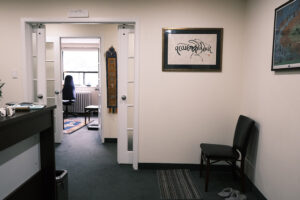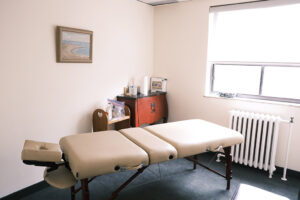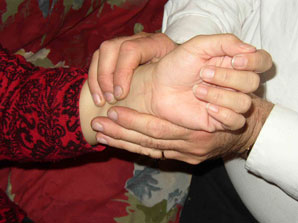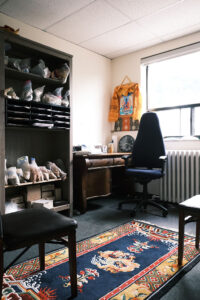



What is a visit to an Emchi like? Even before the visit there are some things to consider. One should go to the visit without having exercise or other physical activities on the day of the visit. Or, if the visit is late in the day, at least have been relatively sedentary for some hours before. If the visit is early enough in the day the Emchi may request you come without eating or drinking in the morning, and without taking a full bath or shower.You should not be up too late or drink alcohol the night before. All these measures will assure that your pulse is in an undisturbed state, and so the physician will get a more accurate perception of the pulse.

You will also be asked to bring a urine sample in an otherwise clean and dry container; a sterile container is not necessary. When entering the Emchi’s consultation room, you will be asked to sit on a chair. Emchis learn to tell much from the aspect of the patient as they enter a room. Then the Emchi will talk to you, in accordance with a system which helps the Emchi to ascertin the imbalance of humours and their localisation. Then he will examine the urine sample. This gives a good general idea about the balance of humours, and sometimes some detailed information about the patient. Then he will take the pulse. This he will do on the radial artery above the wrist. By means of this system of diagnosing the pulse, for which Tibetan medicine is famous and which is different from pulse diagnosis in other systems, he will ascertain the details of your condition. Pulse diagnosis is the single most important tool of the Tibetan physician. Then he may conduct some other diagnostic techniques-pressing certain points to find if they are sensetive, for example. Then he will propose a treatment. This will most likely consist of some dietary and lifestyle advice, and herbal compounds. The diet and lifestyle advice are in most cases not very stringent. The herbs will be in a prepared form, as pills or powders. Most do not need to be boiled, but those which do require boiling take only three to five minutes to prepare. He will provide the herbal preparations himself. Tibetan Medicine also utilises a number of physical therapies, and if the Emchi feels one of these is advisable he may propose it. They are not used in all cases. Shakya Dorje takes up to an hour, or sometimes more, with a patient on a first visit, and usually about half an hour on subsequent visits. This is in accordance with the instructions of his teachers-some physicians work more quickly than this. An Emchi learns to adapt to all manner of patients individually, hence his approach may vary even from one patient to another.